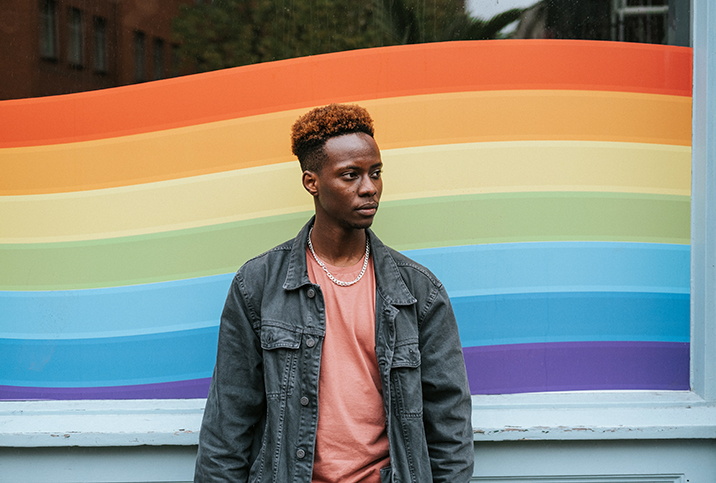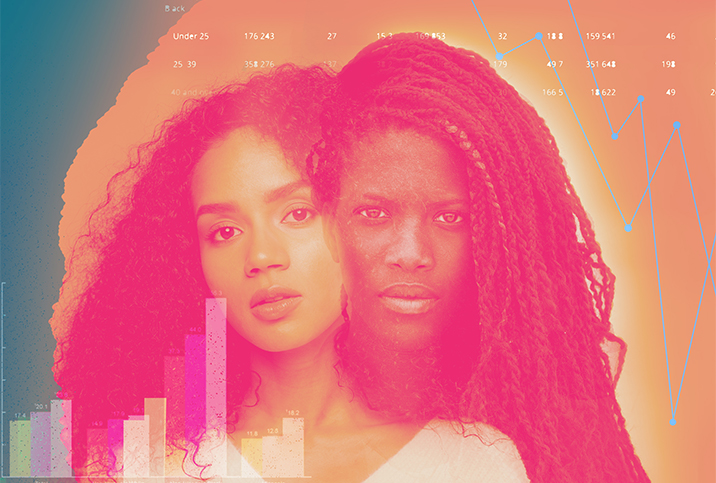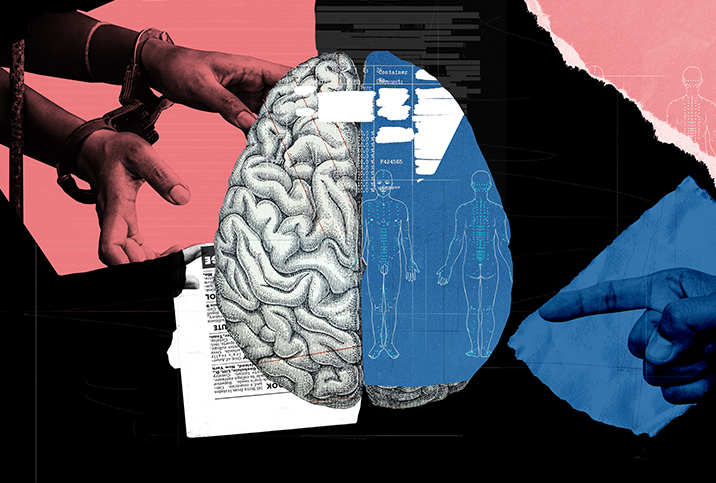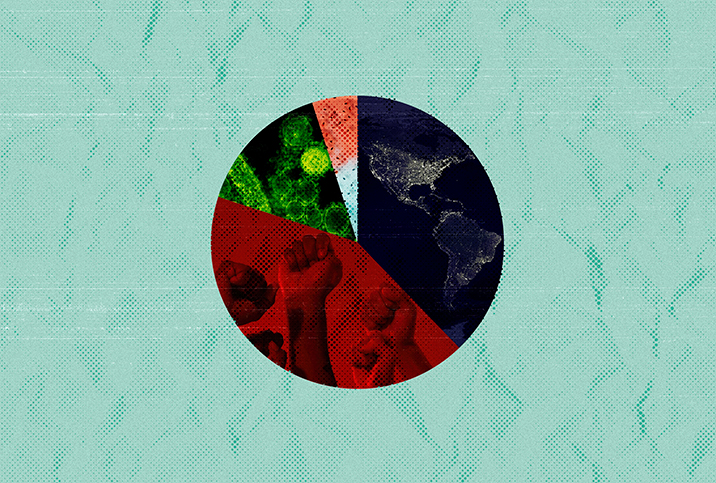Social Stigma Is a Sexual Health Issue, Too

Throughout her years of sex work and advocacy, author and adult content creator Amberly Rothfield has heard endless sexual healthcare horror stories from her sex worker peers.
"Discrimination is so common that it's become something we joke about," she said. "Not that it's funny, but if we don't laugh, we'll cry!"
Within her close-knit circle, some people have been refused service or lectured unnecessarily about safe sex by biased doctors—Rothfield included.
"When I told my doctor that I did webcam work, he would constantly order STD tests and lecture me on what different STDs were," she recalled. "I told him I was a solo performer, but that didn't change the way he treated me."
In more extreme cases, healthcare practitioners have called child protection services to split sex workers from their families, for no reason other than prejudice.
"I barely know any sex workers who have been honest with their medical staff and haven't been discriminated against as a result," Rothfield continued. "For these reasons, most choose not to tell their doctors."
It's not just sex workers impacted by this kind of discrimination: From drug users and people from low-income backgrounds to LGBTQIA+ communities and people of color, there are entire demographics facing barriers to sexual healthcare. And if they do manage to overcome these barriers, they face stigma in clinical settings.
This discrimination is clearly represented in sexual health statistics. The 2019 STD Surveillance Report, released by the Centers for Disease Control and Prevention (CDC) in 2021, recorded all-time high rates of new chlamydia, gonorrhea and syphilis infections. Within these numbers, gay and bisexual men and Black, indigenous and Latino Americans were all overrepresented, which indicates that queer people and people of color are being underserved by sex ed and sexual health treatment.
Former Playboy model Jessica Hall opens up about the stigma of posing nude for the magazine. Watch the full interview here.
Additionally, 2016 research published in the Journal of Women's Health tracked a clear link between structural racism and the fact that "African American women are disproportionately affected by multiple sexual and reproductive health conditions." The Healthcare Equality Index 2020, collated by the Human Rights Campaign Foundation, found "70 percent of gender-nonconforming people and 56 percent of lesbian, gay and bisexual" respondents experienced "some type of discrimination in healthcare."
This is just the tip of the iceberg—data relies on disclosure, and stigma means that groups like drug users and sex workers might feel forced to lie about their details.
The broader cultural reluctance to discuss sex certainly doesn't help.
"Where there is stigma, there is often silence," said Susan Gilbert, co-founder of the National Coalition for Sexual Health (NCSH). "When it comes to sexual health, this is far too often the case. Research shows that many healthcare providers aren't having conversations about sexual health, and, as a result, many people aren't getting preventive healthcare services like STI screening, the HPV vaccine, birth control and HIV testing."
Income inequality plays a significant role, too. Centuries of structural discrimination have made people of color, and trans people in particular, more vulnerable to poverty, and therefore less likely to be able to afford vital treatment.
Rothfield explained that she "tends to be harassed by the billing department more than my white counterparts," recalling one staff member who, after months of letting her pay by check after her appointments, suddenly began demanding payment upfront when she saw the color of Rothfield's skin.
These racist stereotypes cause irreparable damage, especially when they creep into treatment rooms. "For years, providers with biases about Black people's pain tolerance administered care without providing the proper pain-management medication," explained Raegan McDonald-Mosley, M.D., CEO of sexual and reproductive health NGO Power To Decide.
Particularly with regard to reproductive health, racial bias can be lethal: Statistics show Black women in the U.S. are three times more likely to die during childbirth than white women. After doctors ignored her searing pain soon after giving birth, U.K. author Candace Brathwaite contracted septic shock, which almost killed her, spurring her on to write "I Am Not Your Baby Mother," a book that outlines, among other topics, the ongoing repercussions of medical racism.
Data relies on disclosure, and stigma means that groups like drug users and sex workers might feel forced to lie about their details.
Thanks to social movements like Black Lives Matter, there is increasing awareness of how social stigma impacts the everyday lives of marginalized people, but when it comes to sexual and reproductive healthcare, there's still plenty of work to be done. Reporting bigoted comments made by healthcare professionals in a formal complaint can be time-intensive and hugely stressful, which means that these problems often never come to light.
Unfortunately, this makes stigmatized communities more likely to avoid healthcare services, period. In a recent Kaiser Family Foundation survey, only 59 percent of Black adults (compared with 78 percent of white adults) said they fully trusted doctors to make the right decisions for their health. In the U.K., the number of trans people testing for HIV trebled when at-home self-testing kits were made available, indicating a reluctance to attend in-person screenings.
Yet thanks to the tireless work of advocates, the tide is slowly but surely turning. "Because of advocacy within the medical community, states like California have passed laws requiring hospitals to implement evidence-based implicit bias programs and training," said McDonald-Mosley. "We also see a national effort underway to help reduce mortality rates for Black communities, using a grassroots approach and support."
Nonprofits are helping to fill the gaps, too, offering vital tools for self-education and fighting to protect valuable services. The NCSH has handy resources such as the Take Charge of Your Sexual Health guide, which provides inclusive sexual health information. And harm-reduction coalitions across the country have long fought to preserve needle exchange programs, proven to lower rates of new HIV infections. Rothfield recommends sex workers reach out to local chapters of the Sex Workers Outreach Project USA for lists of trusted healthcare providers, and speak openly about fears of stigma or prejudice.
Of course, none of this should be necessary—in an ideal world, the healthcare system would serve us all equally. But with activists working to eliminate stigma wherever they see it, the foundations are at least being laid for a fairer, less discriminatory future. "There's so much more to be done," McDonald-Mosley said. "But we are grateful for this heightened awareness and these efforts to address biases."


















